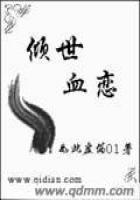But do these buttons that we wear attest that our allegiance is to Nature? No, to the King. Though the ocean, which is inviolate Nature primeval, tho' this be the element where we move and have our being as sailors, yet as the King's officers lies our duty in a sphere correspondingly natural? So little is that true, that in receiving our commissions we in the most important regards ceased to be natural free-agents. When war is declared are we the commissioned fighters previously consulted? We fight at command. If our judgements approve the war, that is but coincidence. So in other particulars. So now. For suppose condemnation to follow these present proceedings. Would it be so much we ourselves that would condemn as it would be martial law operating through us? For that law and the rigour of it, we are not responsible. Our avowed responsibility is in this: That however pitilessly that law may operate, we nevertheless adhere to it and administer it.
"But the exceptional in the matter moves the hearts within you.
Even so too is mine moved. But let not warm hearts betray heads that should be cool. Ashore in a criminal case will an upright judge allow himself off the bench to be waylaid by some tender kinswoman of the accused seeking to touch him with her tearful plea? Well the heart here denotes the feminine in man is as that piteous woman, and hard tho' it be, she must here be ruled out."He paused, earnestly studying them for a moment; then resumed.
"But something in your aspect seems to urge that it is not solely the heart that moves in you, but also the conscience, the private conscience. But tell me whether or not, occupying the position we do, private conscience should not yield to that imperial one formulated in the code under which alone we officially proceed?"Here the three men moved in their seats, less convinced than agitated by the course of an argument troubling but the more the spontaneous conflict within.
Perceiving which, the speaker paused for a moment; then abruptly changing his tone, went on.
"To steady us a bit, let us recur to the facts.- In war-time at sea a man-of-war's-man strikes his superior in grade, and the blow kills. Apart from its effect, the blow itself is, according to the Articles of War, a capital crime. Furthermore-""Ay, Sir," emotionally broke in the officer of marines, "in one sense it was. But surely Budd purposed neither mutiny nor homicide.""Surely not, my good man. And before a court less arbitrary and more merciful than a martial one, that plea would largely extenuate.
At the Last Assizes it shall acquit. But how here? We proceed under the law of the Mutiny Act. In feature no child can resemble his father more than that Act resembles in spirit the thing from which it derives- War. In His Majesty's service- in this ship indeed- there are Englishmen forced to fight for the King against their will. Against their conscience, for aught we know. Tho' as their fellow-creatures some of us may appreciate their position, yet as navy officers, what reck we of it? Still less recks the enemy. Our impressed men he would fain cut down in the same swath with our volunteers. As regards the enemy's naval conscripts, some of whom may even share our own abhorrence of the regicidal French Directory, it is the same on our side. War looks but to the frontage, the appearance. And the Mutiny Act, War's child, takes after the father. Budd's intent or non-intent is nothing to the purpose.
"But while, put to it by these anxieties in you which I can not but respect, I only repeat myself- while thus strangely we prolong proceedings that should be summary- the enemy may be sighted and an engagement result. We must do; and one of two things must we do-condemn or let go."
"Can we not convict and yet mitigate the penalty?" asked the junior Lieutenant here speaking, and falteringly, for the first.















